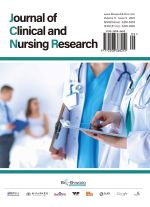Study on the Current Status and Influencing Factors of Depression in Perinatal Women
Abstract
Depression is the most common mental disorder among perinatal women, with its incidence showing an annual increasing trend. Depression poses severe harms to the health of mothers and infants, thus requiring high attention from perinatal women themselves, their families, and society. Studies have shown that there are numerous influencing factors for depression in perinatal women, the most common of which include place of residence, monthly family income, recent appetite, mother-in-law and daughter-in-law relationship, personal history of anxiety and depression, obstetric complications during pregnancy, fear of childbirth, utilization of support, positive coping, and susceptible personality. Based on empirical research, this paper conducts an in-depth study and discussion on the current status of depression and its influencing factors in perinatal women, aiming to provide a basis for formulating scientific and effective preventive and intervention measures, and to contribute modestly to effectively reducing the adverse impact of depression on the physical and mental health of mothers and infants.
References
Arifin S, Kamaruddin A, Muhammad N, et al., 2025, Development of a Spousal-Involved Digital Application for Preventing Depression and Anxiety in Perinatal Women. International Journal of Nursing Sciences, 12(3): 246–252.
Zou Q, Duan X, 2024, Study on the Intention and Influencing Factors of Seeking Professional Psychological Help Among Perinatal Women with Depression and Their Spouses. Journal of Xuzhou Medical University, 44(7): 540–546.
Xiang Y, Yang L, Han R, et al., 2025, Relationship Between the Current Status of Depression in Perinatal Women and Marital Quality. Hebei Medical Journal, 47(3): 501–504 + 508.
Lei X, 2022, Study on the Influencing Mechanism of Online Self-Disclosure and Social Support in Perinatal Women with Self-Perceived Depression, thesis, Huazhong University of Science and Technology.
Chen X, 2023, Current Status of Psychological Help-Seeking in Perinatal Women with Depression and Its Influencing Factors: A Case Study of a Tertiary Hospital in Wuhan, thesis Central China Normal University.
Du X, Deng C, Wen X, et al., 2022, Meta-Analysis of the Effect of Group Psychological Counseling on the Prevention and Treatment of Perinatal Depression in Chinese Women. Chinese Journal of Health Education, 38(11): 1011–1016 + 1027.
Yu M, Xu D, Cai Y, et al., 2021, Detection Rate of Depressive Symptoms and Influencing Factors in Perinatal Women at Different Time Points. Chinese Mental Health Journal, 35(1): 19–25.
Du X, Deng G, Yang Z, et al., 2024, Analysis of the Risk and Influencing Factors of Perinatal Depression in Women of Different Age Groups. Chinese Journal of Preventive Medicine, 25(3): 300–306.
Li Q, Pu S, Zhou W, 2024, The Role and Application Prospect of Oxytocin in Perinatal Depression. Chinese Journal of Perinatal Medicine, 27(12): 1107–1111.
Feng T, 2024, Health Economic Evaluation of Prevention and Treatment Strategies for Perinatal Depressive Symptoms, thesis, Jilin University.
Zhou J, Feng S, 2023, Research Progress on Perinatal Depression. Journal of Clinical Anesthesiology, 39(8): 876–880.
Wang C, Li A, 2023, Dynamic Correlation Analysis Between Perinatal Depression Trajectory and Sleep Quality. Beijing Medical Journal, 45(11): 967–971.
Huang H, Ding Y, Wan X, et al., 2022, Research Progress on the Relationship Between Mother-Fetal Attachment and Perinatal Depression. Nursing Journal of Chinese People’s Liberation Army, 39(4): 71–73.
Liu X, Dong Z, 2021, Pay Attention to the Management of Perinatal Depression in Women. BMJ Chinese Edition, 24(7): 385.
Ding L, 2024, Study on the Correlation Between Allostatic Load and Postpartum Depression in Women in Late Pregnancy, thesis, Anhui Medical University.


